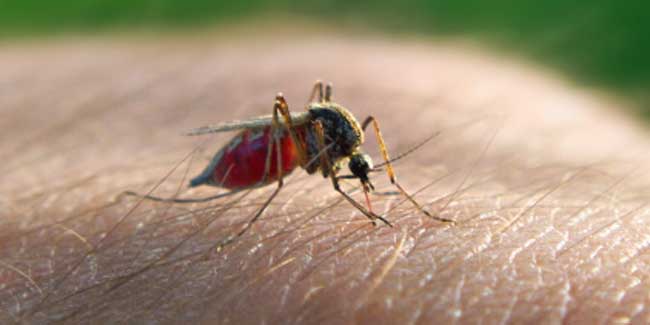Malaria is a plasmodium infection that gets transmitted by the bite of infected Anopheles mosquitoes. This life-threatening infection is estimated to kill about 660,000 people every year. According to the World Health Organization (WHO), nearly 50% of the world’s population was at risk of malaria in 2015.
This disease is rare in temperate climates and is rather common in tropical as well as subtropical climates where the parasites live. The infected mosquitoes carry Plasmodium parasite and their bite releases the parasite into the bloodstream and starts infecting the RBCs. After an infected mosquito bites a human, the parasites multiply in the liver of the host and burst open the infected cells before infecting and destroying red blood cells (RBCs).
The world health officials are making efforts to reduce occurence of malaria through distribution of bed nets so as to protect them while asleep. The scientists all over the world are developing a vaccine for prevention of malaria.
The recurrent attacks of chills and fever occur in infected people. Most of the cases of malaria develop in people traveling to countries where the malaria is prevalent. So take preventive medicines if you are planning a trip to such a location.
In some of the areas, malaria can be treated and controlled with the help of early diagnosis. Here are its symptoms, complications, causes, preventions, diagnosis and treatment.
Causes & Risk Factors
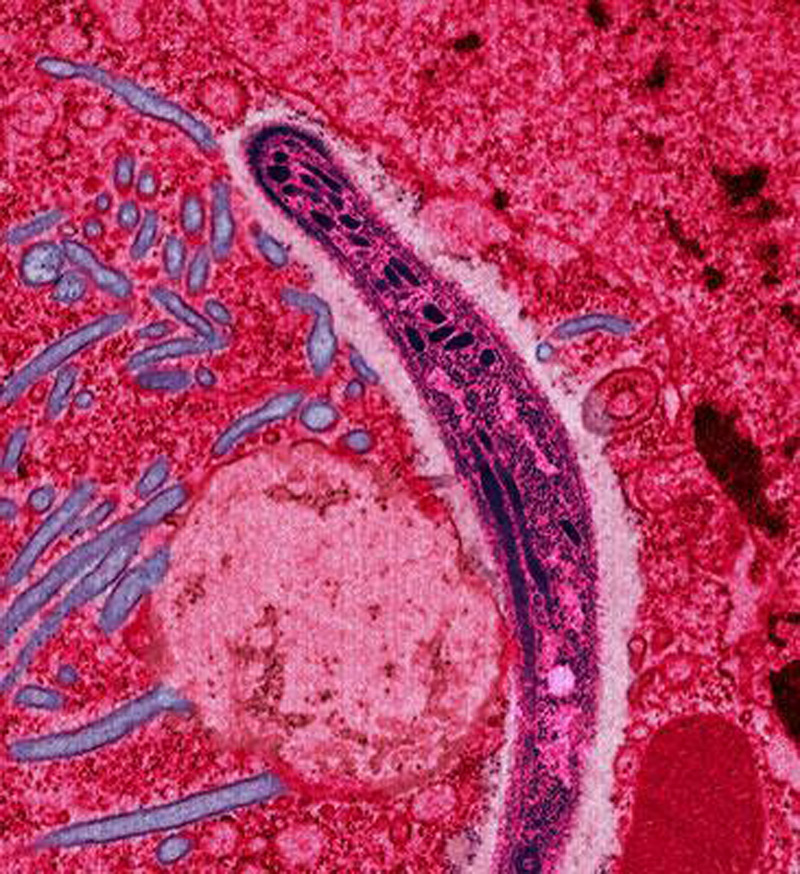
Malaria is caused by a type of microscopic parasite that is transmitted mostly by mosquito bites. Within 2-3 days, the parasites inside the red blood cells multiply and cause the infected cells to burst open. The parasites keep infecting the red blood cells and result in symptoms lasting for 2-3 days.
Mosquito transmission cycle
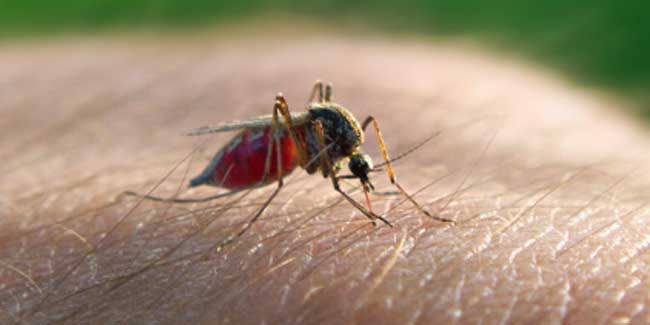
- An uninfected mosquito becomes infected by feeding on a person with malaria.
- Now the parasite transmission occurs to another person.
- The parasites make their way to liver where they can lie dormant for nearly a year.
- After the parasites become mature, they leave the liver and infect your red blood cells. This is the time when the people usually develop signs and symptoms of malaria.
- When an uninfected mosquito bites at this point in the cycle, it becomes infected with malaria parasites and may spread to other person it will bite.
As the parasites causing malaria affect red blood cells, the other modes of transmission include exposure to infected blood: from mother to unborn child, blood transfusions and sharing needles for injecting drugs.
As far as its risk factors are concerned, the biggest risk factor of developing malaria is living in or traveling to tropical/subtropical areas in the world where malaria is widespread. Several different subtypes of malaria parasites exist. Five parasite species are known to cause malaria in the humans, of which P. vivax and P. falciparum are the greatest threats. P. falciparum leads to deadly complications and is most commonly found in the African countries like south of the Sahara Desert, Asian subcontinent and others.
The individuals who are at an increased risk of serious disease include:
- Travelers coming from areas without prevalence of malaria
- Young children and infants
- Pregnant women and their unborn children
- People living in poverty, lack of knowledge and minimal access to healthcare
Signs & Symptoms
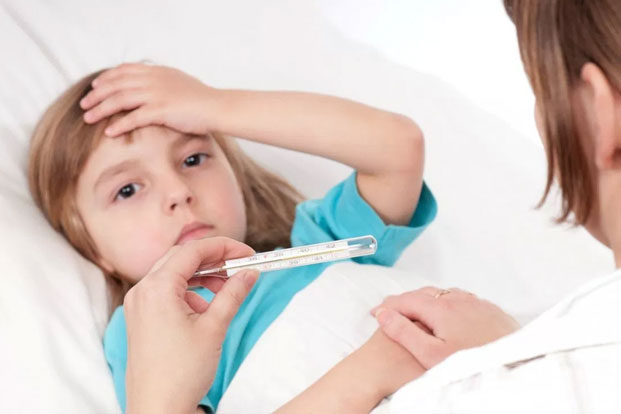
The symptoms of malaria have been classified as uncomplicated and severe.
In case of uncomplicated malaria, the symptoms are present and no signs suggest severe infection or dysfunction of vital organs. This is diagnosed when the symptoms are present, but there are no signs to indicate severe infection or abnormality of the vital organs. It can become severe malaria if left untreated and if the infected individual has poor immunity.
The symptoms of uncomplicated malaria usually last 6-10 hours and recur every alternate day. Some of the strains of parasite can have longer cycle or result to mixed symptoms. Also, its symptoms are similar to that of flu and may go undiagnosed or misdiagnosed in the areas where malaria is less common.
The uncomplicated malaria symptoms progress as follows, through cold, hot, and sweating stages:
- Cold sensation with shivering
- Fever, headache and vomiting
- Seizures sometimes occur in younger people with the disease
- Sweats, followed by a return to normal temperature, with tiredness
In the areas where malaria is endemic, several patients identify these symptoms as malaria and do the self-treatment.
While in severe malaria, the clinical or laboratory evidence suggest signs of vital organ dysfunction. If left untreated, it can prove fatal. The severe malaria symptoms include:
- Fever and chills
- Impaired consciousness
- Exhaustion or taking a prone position
- Multiple convulsions
- Deep breathing and respiratory issues
- Abnormal bleeding and anemia signs
- Clinical jaundice
Complications
Malaria can lead to many life-threatening complications such as:
- Low blood sugar
- Swelling of the blood vessels in the brain or cerebral malaria
- Fluid accumulation in the lungs, causing breathing problems or pulmonary edema
- Organ failure of the kidneys, liver, or spleen
- Anemia because of damaged red blood cells
Diagnosis
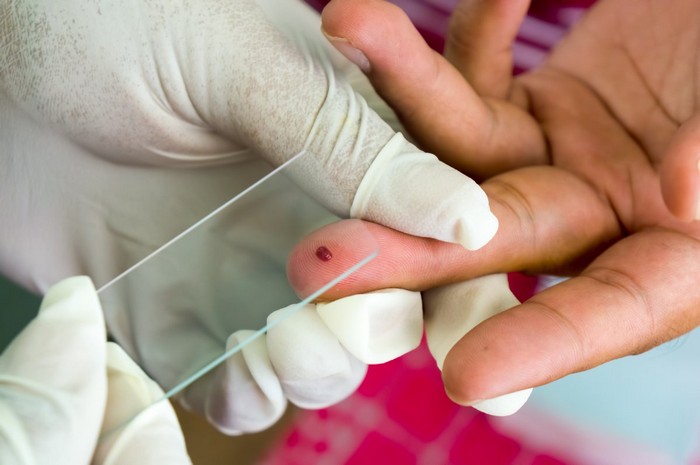
An early diagnosis of malaria is crucial. The individual who shows signs and symptoms of malaria should be tested right away. WHO strongly recommends confirmation of parasite with microscopic lab testing or a rapid diagnostic test (RDT) based on available facilities.
No combination of symptoms can clearly distinguish malaria from other causes. Thus a parasitological test is important to identify and manage the disease. In some of the areas where malaria is endemic, the severity of the disease can lead to mild immunity in a large proportion of the local population. Some people carry the parasites in their bloodstream but do not become sick. The blood tests can show the presence of parasite and help in providing treatment by finding out:
- If you have malaria
- What type of parasite is causing the symptoms
- If the infection is caused by parasite resistant to some drugs
- If the disease affects any of the vital organs
- If the disease has caused anemia
Some of the blood tests can take many days to complete but some bring results in less than 15 minutes. Your doctor will be able to diagnose malaria by reviewing your medical history and asking about travel to tropical climates. A physical examination will also be carried out to check if you have an enlarged spleen or liver.
Treatment

The treatment of this disease is usually provided in a hospital. Your doctor will prescribe the medications based on the type of parasite you are infected with. In certain cases, the prescribed medication might not help in clearing out the infection due to resistance of parasite to the drugs. If that happens, the doctor may recommend you another medication or change your medications for treating the condition. Moreover, in the malaria caused by some parasites that lead to liver stages, more medications can be prescribed to prevent future relapse.
The most common antimalarial drugs include Hydroxychloroquine (Plaquenil), Chloroquine (Aralen), Mefloquine, Quinine sulfate (Qualaquin) and combination of atovaquone and proguanil (Malarone).
Preventions
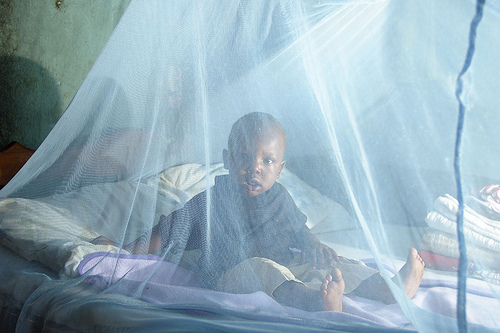
It is essential to seek medical attention for suspected symptoms of malaria as early as possible. No vaccines have yet been developed to safely and effectively prevent or treat malaria.
The travelers who are going to visit a place where malaria is widespread should take preventions by using mosquito nets and other measures.
The people traveling to such places are recommended to:
- Figure out the amount of risk of malaria in that country or city or region they would visit.
- Ask the doctor about the medications to be carried along in order to prevent the infection in that area.
- Get antimalarial drugs to avoid buying counterfeit drugs.
- Be well aware of the malaria symptoms
- Wear proper full-sleeved clothing and have access to preventative tools like pre-treated bednets, insect repellents and insecticides.
- Be considerate of children, pregnant women, older people and those with medical conditions.
“Fogging” is carried out by local health authorities in some countries that involves spraying pesticides similar to household sprays in emergency situations. WHO suggests that they are not harmful to people and pesticide concentration is strong enough to kill mosquitoes.
Moreover, staying in an air-conditioned room and not not camping around stagnant water sources. After returning home from that place, the traveler may be vulnerable to symptoms of malaria. Donating blood may also not be possible for quite a while.
Image Source:
1. madrascourier
2. onlymyhealth
3. parashospitals
4. healthlove
5. indianexpress
6. pcdn
